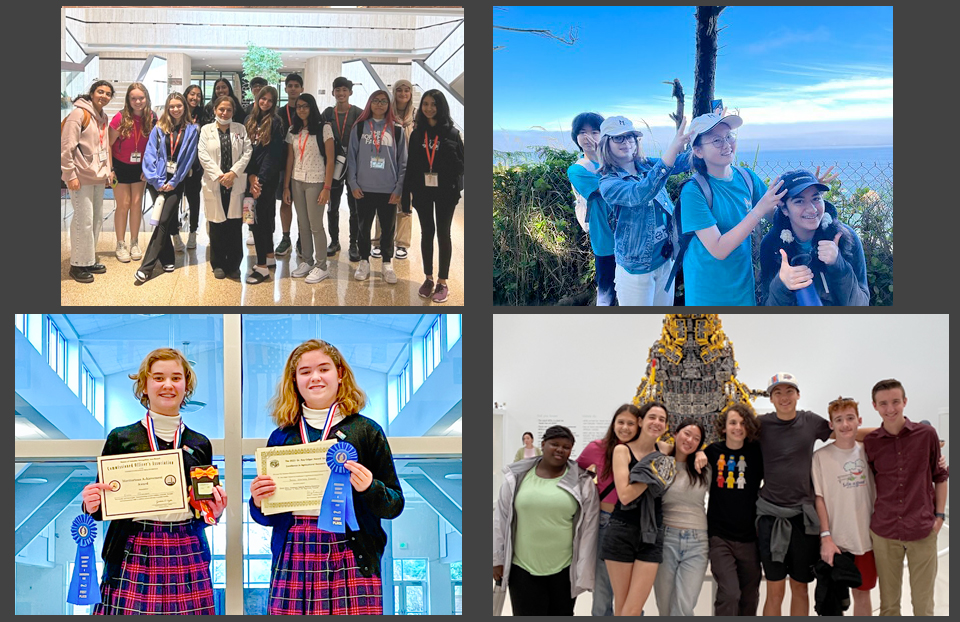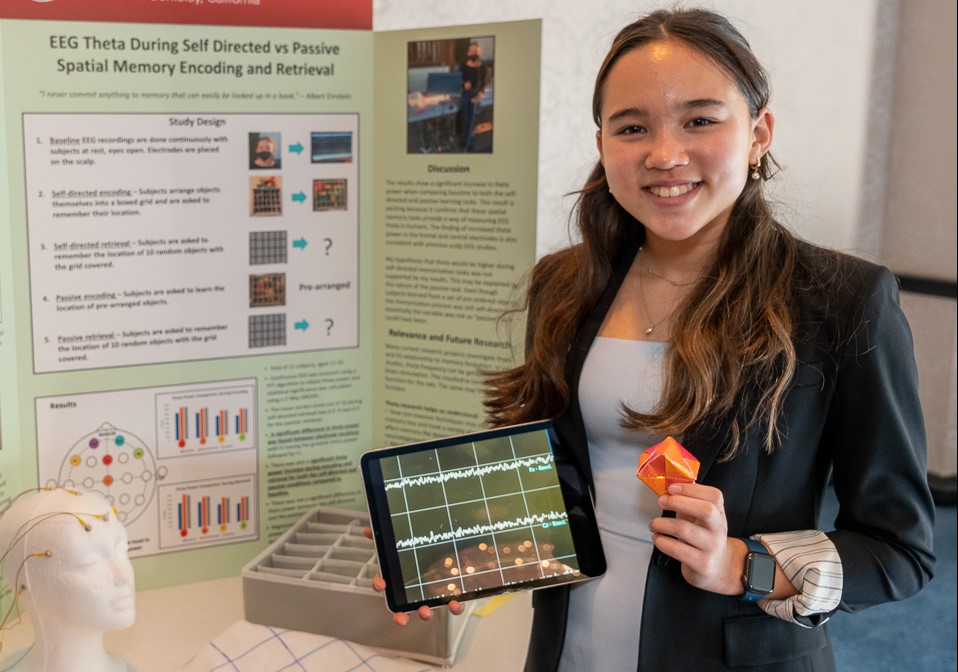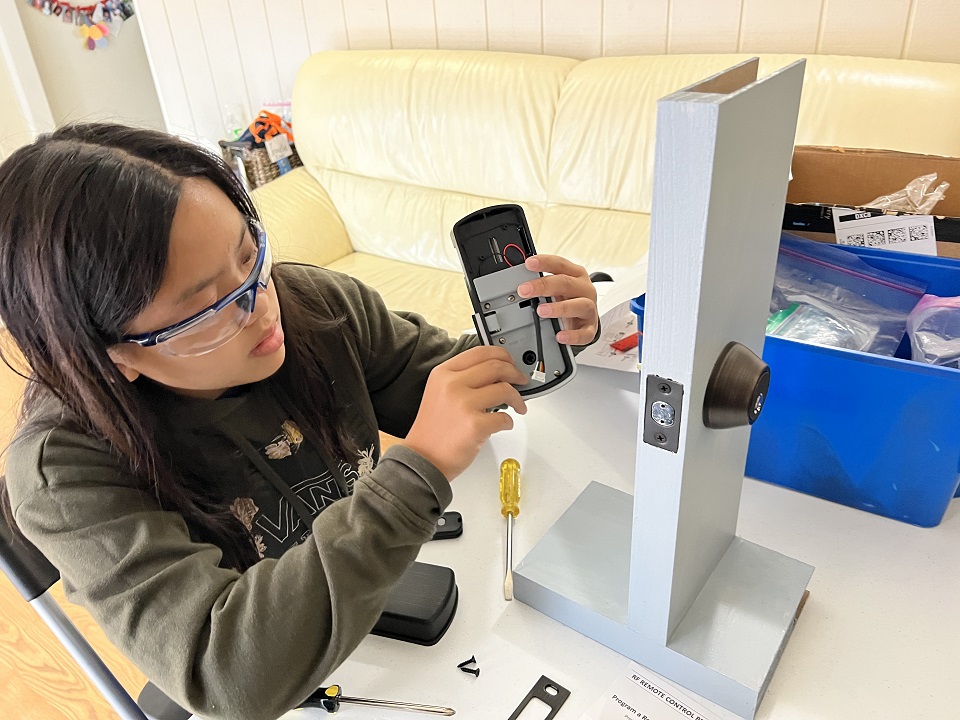Five Questions with Ryka Chopra, winner of the 2021 Robert Wood Johnson Foundation Award for Health Advancement
In 2021, The Centers for Disease Control and Prevention (CDC) reported that approximately 35% of residents in 16 states across the country have obesity. Reports have also shown that childhood and adolescent obesity have been on the rise, particularly during the pandemic; with a sedentary lifestyle and increases in screen time, as well as restrictions on going out to abide by safety protocols, this is no surprise.
While it is common knowledge that fast-food restaurants contribute to obesity rates in communities across the country, a top winner in the 2021 Broadcom MASTERS middle school competition was intrigued to answer the question: ‘Are fast-food chains intentionally building new locations near obese populations?’ Ryka Chopra, a 9th grader from Fremont, California, won the $10,000 Robert Wood Johnson Foundation Award for Health Advancement for her research exploring this question. The award recognizes a student who holds promise in being a researcher contributing to health-related fields.
In her work, Ryka tracked the locations of fast-food restaurants to see whether they were intentionally being built near populations comprised of obese people. Ryka believes that these kinds of business practices could contribute to the obesity cycle. By geocoding the locations of fast-food restaurants, she determined if they were built near obese populations. Her research found that if a certain location had a 1% increase in the rate of obesity, then more than two new fast-food branches would open near the location, targeting obesity clusters and contributing to the obesity cycle. Ryka hopes that policymakers will take notice of her project and enact zoning ordinances and set limits on the number of fast-food establishments that can be opened in a specific city or geographic region.
Ryka tells the Society, “Currently, I am very happy that my research has social relevance. It’s motivating to know that my work matters and that people care about it, but I don’t really care about being renowned as long as my work can contribute to science.”
We had a chance to catch up with Ryka. Let’s hear more from her below.
Which sci-fi advancement do you wish we had by now?
I wish we had time machines, a concept I find very intriguing; it would be cool to be able to visit the past and the future. Seeing how people lived in the past is interesting and being able to see where we are going to end up is something I really want to know. I also want to find out what’s going to happen to me — ‘which college will I go to?’ or ‘what will I choose for my major?’ This would also be a great escape from the present day!
Which scientist – alive or deceased – would you want to solve scientific mysteries with and why?
I would want to solve scientific mysteries with Ada Lovelace. I admire how she helped invent Babbage’s computer. The Analytical Engine is something that has had a huge impact on technology today, and the fact that a woman of her time helped invent it is remarkable. She is credited as the first computer programmer. Not to mention, she was also a countess, a part of the British royalty and a woman in STEM. She really is the blueprint for females in technology today. She is someone who challenged the gender norms of her time and is definitely someone I would like to get to know more.
What would you invent if you had all the resources in the world?
I would either invent a time machine (I think we’ve established that I’m really interested in time travel), or a serum to prevent organ failure in humans. I always found the concept of death intriguing and wondered if there was something that could reverse the things that lead up to the failure of organs. We know the common causes of death — heart attacks, brain death and injuries to major organs. If there were a way to rejuvenate (in a sense) parts of the body that are giving out on us, could death be prevented? This is something I’d like to explore.
Given that Broadcom MASTERS went virtual this year, what about your experience surprised you the most?
Public Day surprised me the most. The platform we used was cool! The actual venue in Washington, D.C. was recreated virtually, and we got to make our own avatars and talk to others in our project booths. I expected a Zoom meeting with breakout rooms, but what we actually did was so much fun. It was a well-thought-out competition and we felt that the Broadcom MASTERS and Society for Science staff went above and beyond to make this event memorable for us. Thank you so much!
What was your most favorite or memorable experience from virtual Broadcom MASTERS? And why?
I loved the team challenges because it was an opportunity to communicate with my team members and work to come up with new ideas and solve problems together. The challenge with JASON Learning was about clinical drug trials, a topic I didn’t know much about. It was fun to come up with our own system to make the drug trials more diverse. I also enjoyed the virtual escape room activity for the finalists since I’ve never been to one before. The virtual escape room felt real, and it was satisfying to solve the puzzles. Broadcom MASTERS was the highlight of my year.


